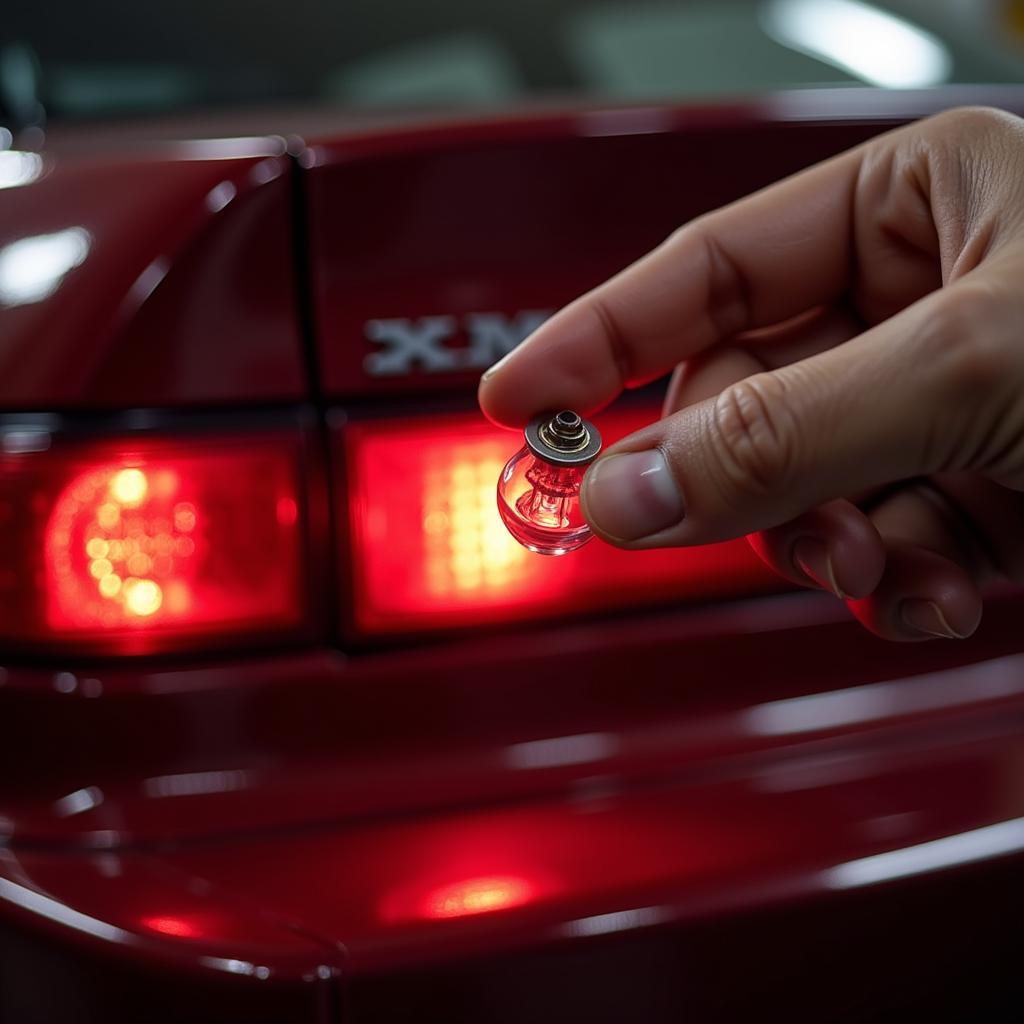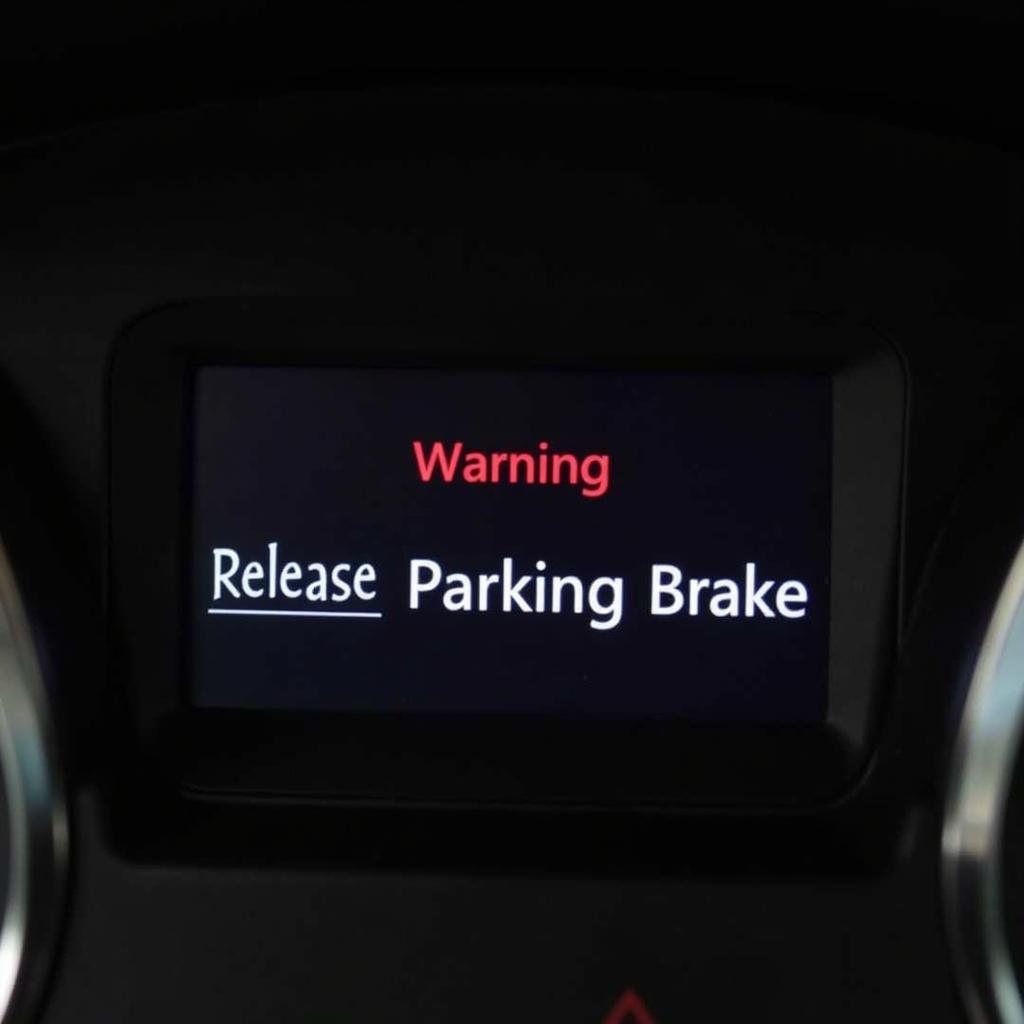The anti-lock brake warning light, often illuminated as “ABS” or a similar symbol on your dashboard, signals a potential issue with your vehicle’s Anti-lock Braking System (ABS). Ignoring this warning light can compromise your safety, especially in emergency braking situations. This comprehensive guide will delve into the common causes, diagnostic procedures, and solutions for the anti-lock brake warning light, empowering you to address the problem effectively. Understanding the complexities of this crucial safety system is key to ensuring safe and reliable vehicle operation.
The appearance of the anti-lock brake warning light can be alarming, but understanding the underlying causes can help demystify the issue. One of the most frequent culprits is a malfunctioning ABS speed sensor. These sensors, located at each wheel, monitor wheel speed and relay this information to the ABS control module. A faulty sensor can disrupt this communication, triggering the warning light. Another common cause is low brake fluid. Your ABS relies on adequate brake fluid pressure to function correctly. If the fluid level drops too low, the system may malfunction, illuminating the warning light. Check your anti-lock brake warning if you’re unsure.
Beyond sensors and fluid levels, issues within the ABS control module itself can trigger the warning light. This module acts as the brain of the ABS, processing information from the sensors and activating the system when necessary. A malfunctioning module can lead to erratic ABS behavior or complete system failure. Finally, damaged wiring or corroded connectors within the ABS system can disrupt communication and activate the warning light.
2013 buick lacrosse anti lock brake warning light
What Does the Anti-Lock Brake System Warning Light Mean?
The anti-lock brake warning light serves as a crucial indicator of a potential problem within your vehicle’s ABS. This system plays a vital role in preventing wheel lockup during hard braking, allowing you to maintain steering control and avoid skidding. When the warning light illuminates, it signals that the ABS may not be functioning correctly, potentially compromising your safety in emergency braking scenarios. Understanding what triggers the anti-lock brake warning light is crucial for prompt diagnosis and repair.
How to Diagnose an Anti-Lock Brake Warning Light
Diagnosing the root cause of an illuminated anti-lock brake warning light typically involves a multi-step process. Begin by visually inspecting the brake fluid level. Low fluid can trigger the warning light and indicates a potential leak in the braking system. Next, check the ABS speed sensors for any signs of damage or debris. A professional diagnostic scan tool can be used to read the ABS fault codes stored in the vehicle’s computer. These codes provide valuable insights into the specific area of the ABS experiencing issues, streamlining the troubleshooting process.
Solutions for an Anti-Lock Brake Warning Light
Addressing an illuminated anti-lock brake warning light depends on the underlying cause. If low brake fluid is the culprit, topping off the fluid and addressing any leaks is crucial. Faulty ABS speed sensors often require replacement. Issues within the ABS control module might necessitate module repair or replacement, while damaged wiring or connectors will need to be repaired or replaced. Consulting with a qualified automotive technician is recommended for accurate diagnosis and effective repair.
Can I Drive with the Anti-Lock Brake Warning Light On?
While you may still be able to drive with the anti-lock brake warning light on, it’s strongly discouraged. Your conventional braking system should still function, but the ABS will be disabled. This means your wheels could lock up during hard braking, increasing the risk of skidding and loss of control. Promptly addressing the issue is essential for ensuring your safety and restoring the full functionality of your braking system. If your anti-lock brake warning light stays on you should seek professional help.
your anti-lock brake warning light stays on you should
Why is My Anti-Lock Brake Warning Light Flashing?
A flashing anti-lock brake warning light often indicates a more serious problem within the ABS. This could signal a complete system failure or a critical malfunction that requires immediate attention. Continuing to drive with a flashing warning light could significantly compromise your safety. Seek professional diagnosis and repair as soon as possible.
Conclusion
The anti-lock brake warning light serves as a critical safety alert, demanding prompt attention. Understanding the potential causes and solutions empowers you to address the issue effectively, ensuring the continued safety and reliability of your vehicle’s braking system. Don’t ignore this crucial warning—take action to maintain optimal braking performance and prevent potential hazards on the road.
FAQ
- What does the ABS warning light look like? It typically appears as the letters “ABS” or a circular symbol with a circled exclamation point inside.
- Can I fix the ABS warning light myself? While some simple checks can be performed, diagnosing and repairing ABS issues often require specialized tools and expertise.
- How much does it cost to fix an ABS warning light issue? The cost can vary depending on the underlying cause and the necessary repairs.
- Is it safe to drive with the ABS light on? While you may be able to drive, your ABS will be deactivated, increasing the risk of wheel lockup during hard braking.
- How can I prevent ABS problems? Regular brake system maintenance, including fluid checks and inspections, can help prevent ABS issues.
- What should I do if my ABS light comes on while driving? If safe to do so, pull over and check your brake fluid level. If the light persists, seek professional assistance.
- What is anti-lock brake system warning ligh? It indicates a potential issue with your Anti-lock Braking System.


